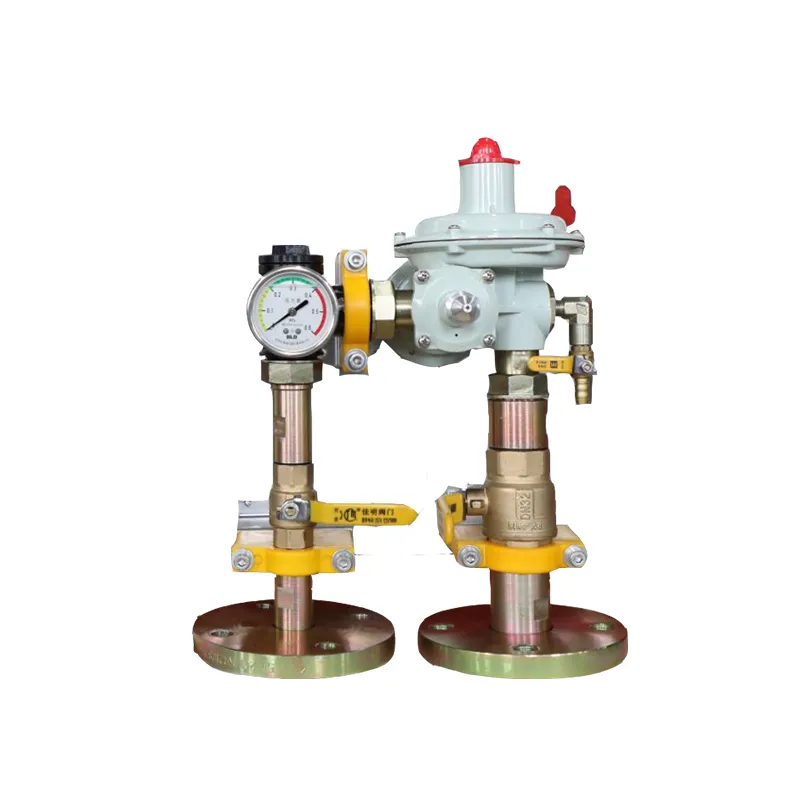
Nov . 25, 2024 22:30
Back to list
Gas Valve Operation and Maintenance Guide for Efficient Performance
The Importance of Gas Valves in Modern Industry
Gas valves are essential components in a wide range of applications, particularly in industries that rely on the controlled flow of gases. From residential heating systems to large industrial processes, gas valves play a vital role in ensuring safety, efficiency, and reliability. This article will explore the various types of gas valves, their applications, and the importance of maintaining and properly managing these devices.
Understanding Gas Valves
A gas valve is a device that controls the flow of gas within a system. There are several types of gas valves, each designed for specific applications and functions. The most common types include
1. Ball Valves These valves have a spherical disc that controls the flow of gas. They are often used where a quick shut-off is required, as they can fully open or close the flow with a simple quarter turn.
2. Gate Valves Used primarily for on/off control, gate valves allow for maximum flow when fully opened but are not suitable for throttling applications.
3. Globe Valves These valves provide good throttling capabilities, which makes them ideal for applications where flow regulation is necessary.
4. Safety Valves Safety valves are critical in preventing overpressure situations by automatically releasing gas when pressure exceeds a certain threshold.
5. Regulating Valves These valves maintain a constant pressure in the system, adjusting the flow as needed to ensure stability.
.
Gas valves are found in numerous sectors, including residential, commercial, and industrial applications. In homes, gas valves control the supply of natural gas for heating, cooking, and appliances. In commercial settings, such as restaurants and hotels, gas valves are essential for kitchen equipment, heating systems, and other gas-operated appliances.
صمام الغاز

In industrial applications, gas valves play a critical role in the manufacturing process, controlling the flow of gases in operations such as chemical production, oil refining, and power generation. Additionally, gas valves are crucial in the petrochemical industry, where precise control of gas mixtures is necessary for safety and efficiency.
Safety and Maintenance
The proper functioning of gas valves is vital for ensuring safety in any gas-utilizing environment. Faulty gas valves can lead to leaks, potential explosions, and other dangerous situations. Therefore, regular maintenance and inspections are essential to ensure that gas valves are working correctly.
Routine maintenance might include checking for leaks, inspecting seals and gaskets, and testing the functionality of safety valves. It is also important to ensure that valves are not corroded or damaged, as this can compromise their ability to function correctly.
Workers should be trained to recognize the signs of potential valve failure and to take appropriate action when issues are detected. In industrial settings, having a robust maintenance schedule and clear operational protocols can significantly reduce the risk of accidents.
The Future of Gas Valve Technology
As technology advances, the design and functionality of gas valves are also evolving. Innovations such as smart valves with IoT (Internet of Things) capabilities are becoming more common. These valves can be monitored and controlled remotely, allowing for better oversight of gas flow and pressure in real-time.
Such advancements can lead to increased efficiency in gas usage, reduced emissions, and enhanced safety measures. As industries shift toward more sustainable practices, the role of gas valves will continue to be pivotal in achieving these goals.
Conclusion
Gas valves are integral to the safe and efficient operation of gas systems across various applications. Their significance in maintaining safety standards and ensuring operational efficiency cannot be overstated. By prioritizing the maintenance and management of gas valves, industries can protect their workers, the environment, and their bottom line. As technology continues to advance, the future of gas valves appears promising, with enhanced capabilities that could redefine the gas management landscape.
Latest news
-
Safety Valve Spring-Loaded Design Overpressure ProtectionNewsJul.25,2025
-
Precision Voltage Regulator AC5 Accuracy Grade PerformanceNewsJul.25,2025
-
Natural Gas Pressure Regulating Skid Industrial Pipeline ApplicationsNewsJul.25,2025
-
Natural Gas Filter Stainless Steel Mesh Element DesignNewsJul.25,2025
-
Gas Pressure Regulator Valve Direct-Acting Spring-Loaded DesignNewsJul.25,2025
-
Decompression Equipment Multi-Stage Heat Exchange System DesignNewsJul.25,2025

